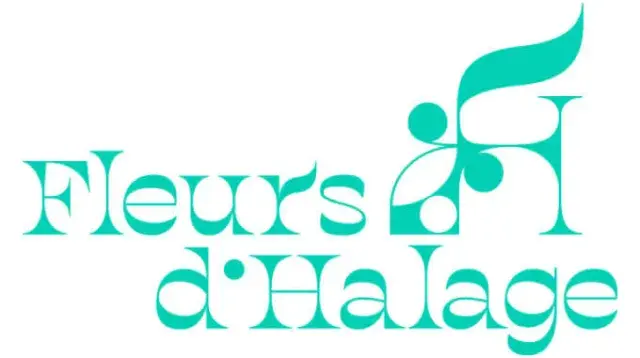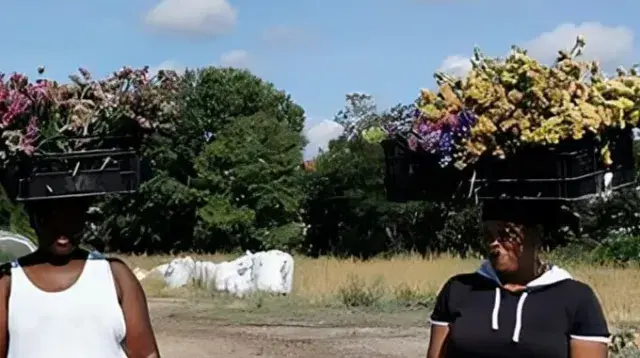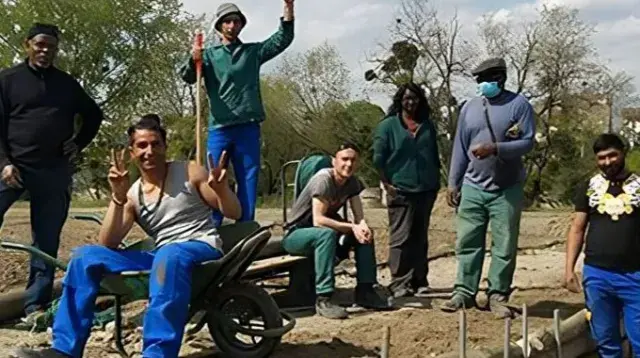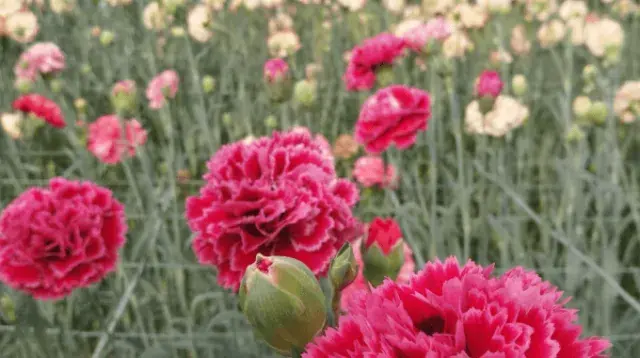Recovering degraded urban soil with horticulture
Transforming soil that’s been degraded by industry into valuable horticultural plots while promoting social integration and getting people into work.
In France, the flower industry mainly relies on imports, usually from all over the world via the Netherlands. Growing flowers involves a significant amount of pesticides, and transporting cut flowers over long distances means consuming fossil fuels. The French flower industry is weakened by its heavy reliance on imports and, at the same time, is going through some major changes as consumers are becoming increasingly aware of environmental issues.
The Halage Association, through its Fleurs d’Halage project, offers a solution: developing a new French flower industry by training people otherwise excluded from employment in horticulture and encouraging them back into work.
The Halage Association
Founded in 1994 (making it as old as Klorane Botanical Foundation!), the Association is based in Île-Saint-Denis. It works to respond to challenges in the region and runs a number of initiatives in favour of raising public awareness and ecology.

Horticulture on abandoned urban plots
Supported by Klorane Botanical Foundation, the Fleurs d’Halage project puts developing horticulture on abandoned soil at the heart of its efforts. Besides responding to environmental challenges, the Association offers solutions to social integration and employment.

Recovering degraded soil
Fleurs d’Halage is all about growing flowers in urban environments, in line with the seasons, by conserving the soil and banning pesticides and other chemicals. Crops are spread over 3 sites in the Paris area. One of them is 3.6 ha of former industrial wasteland located in Île Saint-Denis. The soil was previously unsuitable for growing crops for human consumption. But horticulture has made it possible to recover this once abandoned plot.

Social integration through horticulture
Fleurs d’Halage is currently helping 16 employees find their way back into the world of work, with a perfect gender balance: 50% women, 50% men. To promote social integration and help people back into work, employees are trained in plant-based skills, in particular for careers as urban horticulturalists.

100%
That’s the pass rate and return to work rate (since Fleurs d’Halage was created in 2018).
Each employee is supervised and supported by a careers advisor from the Association who works to resolve various barriers to employment while putting together a specific career plan.

Promoting the short circuit economy
In 2021, Fleurs d’Halage produced 100,000 flower stems across 60 different varieties. What happens to the flowers once they’re cut, you ask?
They’re sold by the stem, the armful, the bouquet... as fresh or dried flowers, all as part of a (very) short circuit economy! Indeed, flowers are sold on to florists, AMAP (an association working to protect small-scale farming) cooperatives, as well as partner retail outlets in the Paris area. From the smallest Parisian florists to the runway at Paris Fashion Week or the Palace of Versailles, you’re sure to come across some Fleurs d’Halage flowers on any jaunt to Paris.
And as an added environmental benefit, deliveries only consume renewable energies, since they’re made by electric vehicles!
Klorane Botanical Foundation supports Fleurs d’Halage
Until now, Fleurs d’Halage has lacked one key piece of essential infrastructure to run a more autonomous horticultural model: a nursery. The absence of a specific facility for producing flower seedlings has forced the Association to regularly import seedlings, which naturally goes against the values and principles of the project.
Klorane Botanical Foundation is supporting the construction of a dedicated nursery. Scheduled to be up and running in the first quarter of 2022, it will have several benefits for the Association:
- Better production planning with increased productivity;
- Independence by bringing plant production in house;
- Increased flower quality.
Klorane Botanical Foundation is also helping to support the opening of a new production site for the Association, which is scheduled for 2022.
The biggest challenge yet for Fleurs d’Halage in 2022
By the end of 2022, Fleurs d’Halage is hoping to create a local marketplace for local flowers in the Paris region! The concept? A place that’s open to everyone! Florists, horticulturalists and the general public alike. A local space for stocking up on short circuit economy products, with flowers grown with respect for both local people and the local environment, all at top quality.
A welcoming hub for meeting, sharing and exchanging.
